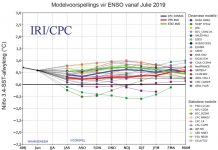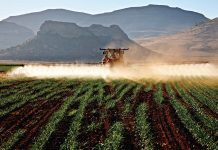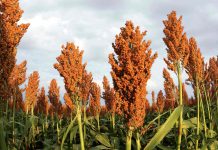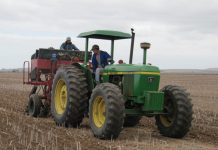
There are certain responsibilities in terms of acquisition, sales, marketing, advertising, promotion, recommendation and use of agricultural remedies.
The following persons (natural or legal as in a company) have certain responsibilities in terms of agricultural remedies:
- The registration holder (this is mostly a company).
- The distributor (this is mostly a company).
- The agent (who mostly works for a distribution company).
- The consultant (who mostly works as a sole operator).
- The retailer (who is mostly a company and in the case of the agricultural sector is a distributor).
- The retailer’s staff (who in the case of the agricultural sector is an agent).
- The pest control operator (who may be an aerial applicator or otherwise a normal pest control operator).
- The person buying and applying the agricultural remedy (who can be a producer, gardener, home owner or any other individual applying his or her own agricultural remedies not as a commercial venture).
Duties, responsibilities and liabilities
Duties, responsibilities and liabilities of the registration holder according to Act No. 36 of 1947:
- The registration holder must ensure that its product:
- Is registered, irrespective of whether the agricultural remedy is marketed as a synthetic, organic or natural product.
- Is of the chemical and physical properties as approved for its registration.
- Is effective as claimed in the registration application.
- Is packaged in the approved container that doesn’t leak and in the prescribed volume.
- Is supplied with the approved and original label.
- Does not exceed the local maximum residue limit if applied according to label instructions.
- The registration holder cannot be held accountable for the failure of a product, crop damage, human impact or environmental impact caused by the product if it was not applied strictly according to label instructions. This is due to the fact that the registration holder has no control over the application of the product unless it is done by one of their own staff (which is mostly unlikely to happen).
- The registration holder can be held accountable for crop damage or poor performance if certified chemical analysis proves that the product is not of the chemical and physical properties as claimed on the registration thereof.
Distributor’s responsibilities
Duties, responsibilities and liabilities of the distributor according to Act No. 36 of 1947:
- The distributor must at all times:
- Only distribute registered agricultural remedies.
- Only distribute registered agricultural remedies that are properly packaged and properly labelled by the registration holder.
- Only distribute agricultural remedies for those purposes and to be applied as in the manner as instructed on the labels of the respective products (this is a compliance requirement in terms of Regulation No. R1716 of 26 July 1991 of Act No. 36 of 1947).
- Be licensed to sell Group I agricultural remedies under the Hazardous Substances Act (Act No. 15 of 1973).
- Keep strict records of the sale of Group I agricultural remedies in a poison register.
- Only recommend the use of agricultural remedies for those purposes and in those manners as instructed by their labels.
- The distributor cannot be held accountable for the failure of a product, crop damage, human impact or environmental impact caused by the product if it was not applied strictly according to label instructions and advice that was offered in full compliance with label instructions. This is due to the fact that the distributor has no control over the application of the product unless it is done by one of their own staff (which is unlikely to happen unless those staff members are registered pest control operators).
- The distributor can be co-accountable with the person who applied the product for the failure of such product, crop damage, human impact or environmental impact caused by the product if it was not applied strictly according to label instructions and if the distributor issued written instructions or offered verbal advice that contradicts the label instructions. Take note that any action, whether written, verbal or inferred todraw attention to the use of a product is regarded as advertising and advertising is regarded as selling in terms of Act No. 36 of 1947. Any advice (advertising sensu stricto) must therefore be only according to label instructions.
Agent’s or sales personnel’s responsibilities
Duties, responsibilities and liabilities of the agent or sales personnel:
- Only sell registered agricultural remedies.
- Only sell registered agricultural remedies that are properly packaged in original packaging and labelled by the registration holder.
- Only make recommendations for the use of an agricultural remedy (including giving advice for use) according to its label instructions – this includes the purpose for which the remedy is intended and the application method that is intended.
- Only sell an agricultural remedy according to the label instructions – this includes the purpose for which the remedy is intended and the application method that is intended.
- The agent or sales person cannot be held accountable for the failure of a product, crop damage, human impact or environmental impact caused by the product if it was not applied strictly according to label instructions and advice that was offered in full compliance with label instructions. This is due to the fact that the agent has no control over the application of the product unless it is applied by him.
Consultant’s responsibilities
Duties and responsibilities of the consultant:
- May only recommend the use of registered agricultural remedies.
- May only recommend the use of agricultural remedies according to their label instructions.
- The consultant is co-accountable for the failure of a product, crop damage, impacts on human health, livestock and the environment along with the person who applied an agricultural remedy contrary to label instructions if the consultant advised the client to do so or sold an agricultural remedy to this effect.
Pest control operator’s responsibilities
Duties, responsibilities and liabilities of the pest control operator:
- Must be registered as a pest control operator in terms of Section 7 (2) of Act No. 36 of 1947 in order to offer pest control services in the course of business to another person or business. Note that a farm worker who applies agricultural remedies on the farm is not a pest control operator and does not have to be registered as such. A person offering pest control to a producer and who is not employed by a producer is a pest control operator and must be registered as such.
- May only provide pest control services for the field in which he or she has been registered.
- May only apply registered agricultural remedies according to their label instructions. Aerial applicators must abide by the SANS 10118 standard in terms of aerial application of pesticides.
- Must provide the client with an invoice stating the trade name of the agricultural remedy to be applied, the active ingredient of such remedy, the dosage rate of the remedy, the purpose for which it will be applied and any particular safety precautions.
- Must provide clients with safety warnings and precautions before pesticides are applied in situations where people may be exposed to it.
- The pest control operator can be held liable if damage to human health, crops, livestock or the environment is incurred due to wrongful (off-label) application of pesticides. In the case of aerial application, both the client and the aerial applicator are accountable for damage to human health, crops, livestock and the environment if pesticides were applied contrary to their label instructions.
Buyer’s responsibilities
Duties and responsibilities of the person who buys and applies his or her own agricultural remedies:
- Only buy and apply registered agricultural remedies.
- Only apply agricultural remedies for those purposes and in those manners as instructed by their labels.
- Only use on crops as instructed by the label.
- Only use for pests as instructed by the label.
- Only use label instructed dosage rates.
- Only use label instructed application frequencies and intervals.
- Only use label instructed number of applications per growth season.
- Only use label instructed tank mixtures.
- Adjust pH and water hardness with appropriate additives according to label instructions.
- Only apply during label instructed window of application to ensure that maximum residue limit is not exceeded if commodity is harvested strictly after the pre-harvest interval (PHI). Should there be a zero level maximum residue limit for a particular active ingredient in export destinations, such an active ingredient should not be applied at all.
- Only harvest the commodity after the pre-harvest interval.
- Store agricultural remedies in a secure place with adequate light, ventilation, fi re protection and access control.
- Ensure that all workers handling, mixing and applying pesticides wear appropriate protective clothing as instructed by label warnings, precautions and pictograms.
- Participate in the CropLife South Africa empty plastic pesticide container management programme (see www.croplife.co.za under Waste Management).
- Keep proper records of agricultural remedies, use the first-in-first-out principle and do not accumulate stock.
- The producer or end user of an agricultural remedy must ensure that an agent or distributor who recommends and sells agricultural remedies does so only according to label instructions.
- Should a producer or end user use an agricultural remedy for any purpose or in any manner other than what the label instructs, that person is liable under Act No. 36 of 1947 and should there be any crop damage as a result of such use, the producer or end user has no recourse against the registration holder of such a product.
Contraventions
The most common contraventions of Act No. 36 of 1947:
- Advising the use of agricultural remedies for purposes or in manners other than what they were registered for.
- Selling agricultural remedies for purposes or in manners other than what they were registered for.
- Using agricultural remedies for purposes or in manners other than what they were registered for.
- Importing unregistered agricultural remedies.
- Selling unregistered agricultural remedies.
- Selling agricultural remedies after decanting it into unlabeled containers.
- Applying agricultural remedies by aerial application if they are not registered for such application.
- Selling Group I agricultural remedies when not licensed to do so.
If you are unsure of a particular product registration or application, visit www.agri-intel.com to access CropLife South Africa’s agricultural remedies database of crop protection products registered for use in South Africa, as well as the labels of all the trade names available in the database.
The most important message in this article is: Apply agricultural remedies strictly according to label instructions.
For any further advice contact Dr Gerhard Verdoorn at 082 446 8946 or gerhard@croplife.co.za.
















